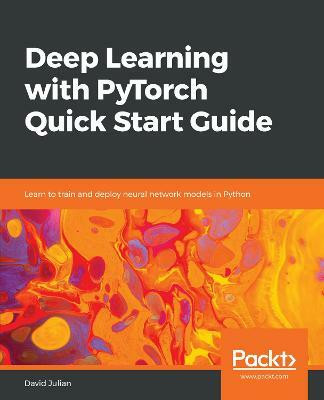Deep Learning with PyTorch Quick Start Guide(English, Paperback, Julian David)
Quick Overview
Product Price Comparison
Introduction to deep learning and PyTorch by building a convolutional neural network and recurrent neural network for real-world use cases such as image classification, transfer learning, and natural language processing.Key Features Clear and concise explanations Gives important insights into deep learning models Practical demonstration of key conceptsBook Description PyTorch is extremely powerful and yet easy to learn. It provides advanced features, such as supporting multiprocessor, distributed, and parallel computation. This book is an excellent entry point for those wanting to explore deep learning with PyTorch to harness its power. This book will introduce you to the PyTorch deep learning library and teach you how to train deep learning models without any hassle. We will set up the deep learning environment using PyTorch, and then train and deploy different types of deep learning models, such as CNN, RNN, and autoencoders. You will learn how to optimize models by tuning hyperparameters and how to use PyTorch in multiprocessor and distributed environments. We will discuss long short-term memory network (LSTMs) and build a language model to predict text. By the end of this book, you will be familiar with PyTorch's capabilities and be able to utilize the library to train your neural networks with relative ease.What you will learn Set up the deep learning environment using the PyTorch library Learn to build a deep learning model for image classification Use a convolutional neural network for transfer learning Understand to use PyTorch for natural language processing Use a recurrent neural network to classify text Understand how to optimize PyTorch in multiprocessor and distributed environments Train, optimize, and deploy your neural networks for maximum accuracy and performance Learn to deploy production-ready modelsWho this book is for Developers and Data Scientist familiar with Machine Learning but new to deep learning, or existing practitioners of deep learning who would like to use PyTorch to train their deep learning models will find this book to be useful. Having knowledge of Python programming will be an added advantage, while previous exposure to PyTorch is not needed.


